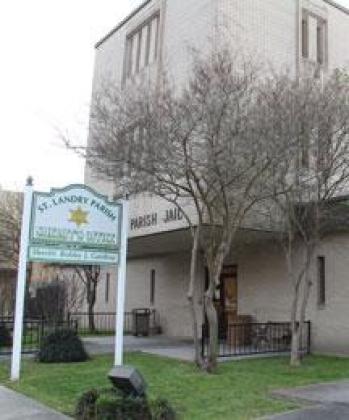
Paul Braun /LSU Manship School News Service
Department of Public Safety and Corrections Secretary Jimmy LeBlanc said most parish jails would be unable to continue to house state prisoners if $40 million in cuts proposed in Gov. John Bel Edwards’ preliminary budget went through.
Those cuts would decrease the state payments to local sheriffs to $19.39 for each inmate per day from $24.39 last year. The state houses the majority of its inmates in parish jails, in part because they are cheaper than the $38.26 a day it spends to keep inmates in state-run prisons.
“We would have to start putting inmates on chapel floors, gym floors, double and triple bunking,” LeBlanc said. “When you do that, it creates safety concerns for corrections staff and inmates.”
LeBlanc said he was hopeful that Edwards and the Legislature would reach an agreement to avoid such deep cuts. He said the cuts would be difficult for his department and would threaten to undo some of the changes that the Legislature made last year to improve the criminal-justice system.
“This budget is a complete step backwards from the progress made last year,” LeBlanc said. “We need help in our local-level prison operations because this is something really scary.”
Caddo Parish Sheriff Steve Prator agreed, saying if the proposed budget were implemented, he would transfer the Corrections Department inmates housed in his parish back to the state.
“To take a $5 cut per day wouldn’t be fiduciarily sound for me,” Prator said.
Prator said he plans to work with his local legislators as the budgeting process evolves to ensure adequate funding.
“Once this clears up a little bit, and without trying to scare anyone, I will explain to our legislators just how drastically this will hurt us,” Prator said.
If sheriffs were to start sending back their state inmates, LeBlanc said, the department would be at risk of losing its accreditation from the American Correctional Association, a status he described as a “cornerstone” of its efforts to avoid federal oversight and the higher costs that come with it.
“When the federal court intervenes, then it is basically an open checkbook,” LeBlanc said.
LeBlanc said the attempts to reduce departmental spending have led to financial inefficiencies.
For example, he said, low wages for corrections officers have made it difficult for the department to fill vacancies. To adequately staff prisons, wardens are regularly forced to call in workers for overtime shifts, paying them 1.5 times their normal hourly wage.
Long hours and low pay have led to low morale and contributed to problems with officers smuggling contraband into the facilities, LeBlanc said. Turnover among first-year corrections officers is 62 percent, he added.
LeBlanc praised the two-percent pay hike for state employees that the Legislature passed last year. But said greater increases are needed to attract qualified applicants to front-line positions in his department.
The proposed budget provided no money for infrastructure improvements. LeBlanc said the department had not received money for repairs since 2008, and he described the aging system as “beginning to fold in on itself.”
He estimated that it would cost his department $22 million to update its facilities.
Edwards has said that he does not support $1 billion in cuts he proposed on Monday in the overall state budget. But he was required to propose a balanced budget while he and Republican leaders negotiate over possible revenue-raising measures that could cover a projected $1 billion budget gap.
